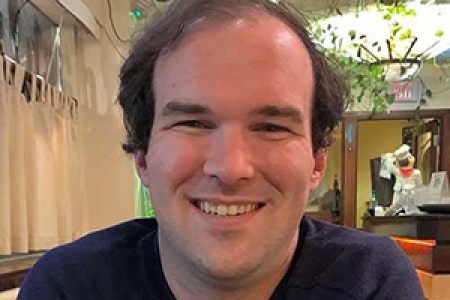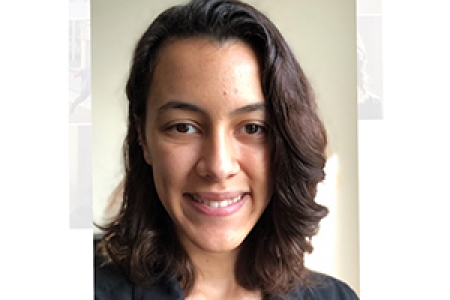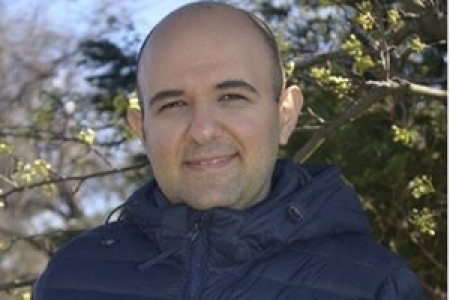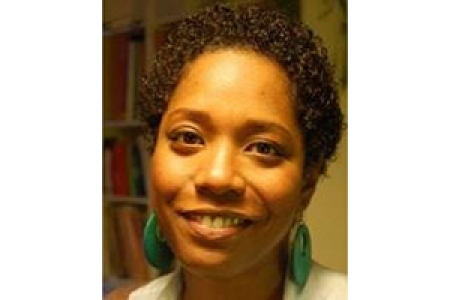Pforzheimer Fellowships provide an opportunity for graduate students to work on a library project with a librarian or archivist. The fellowships are a chance for them to learn about library careers, advance their own research skills, and get to know a library from the inside.
Documenting the war in Ukraine with internet-based primary sources
Brett Donohoe, PhD candidate (Slavic languages and literatures)
Americas Europe Oceania Division (AEOD), Widener Library
Library mentors: Olha Aleksic & Anna Rakityanskaya

This project looked closely at web archiving to build and enhance collections of internet sources documenting Russia's full-scale invasion of Ukraine on February 24, 2022. A two-fold project, Brett worked on two different archives of primary sources. The first was the Sucho Meme wall, an ever-expanding collection of memes about the political atmosphere in Ukraine. Brett wrote glossary text that was then embedded into the metadata of each meme, providing users with greater context about the memes' meaning and significance. The second archive was building out the Ukrainian Research Institute's "Russia's War on Ukraine" archive. Brett secured permissions from each primary source to collect and preserve information for the archive, as well as compiled metadata for each entry to enhance searchability. Both archives will be extremely critical for contemporary and future scholars looking at this war period.
Connecting the Gutman Collections to the Black Teacher Archive
Morgan Forde, PhD candidate (urban planning and African American history)
Monroe C. Gutman Library, GSE
Library mentors: Carla Lillvik & Micha Broadnax

This project focused on developing strategies for connecting resources between the Black Teacher Archive (BTA) and the Gutman Library Collections by using OCLC's GreenGlass collection analytics tool. Morgan first assessed the scope of available materials currently in the BTA and created a Library research guide, which will help researchers locate specific resources related to their research focus. A third element of Morgan's work resulted in a recommendation for additional materials across Harvard Library's holdings to be digitized to improve accessibility by users.
Indigenous Studies of Near East, Middle East and North Africa
Masoud Ariankhoo, PhD candidate (histories and cultures of Muslim societies)
Middle East, Asia and Africa Division (MEAAD)
Library mentor: Sarah DeMott

Librarians are often asked for “research tricks'' and “search strategies” for working in Harvard’s HOLLIS Catalog to identify both summaries of collection highlights and clues for unique resources. Masoud's work first identified how best to define 'indigenous' within the Middle Eastern collections. This included an evaluation of holdings and curation of digital content, which uncovered how Hollis prioritized different sources in the search results based on their transliteration. Through this analysis, Masoud highlighted sources that are difficult, but useful, for researchers to locate through HOLLIS searches. Masoud's discoveries and work resulted in a list of nearly 100 materials recommended for digitization to increase their accessibility by researchers and students.
The Legacy of Slavery in Houghton Library's Collections
Angélica María Sánchez Barona, PhD candidate (African and African American studies)
Houghton Library
Library mentor: Sara Powell

The report on the Legacy of Slavery at Harvard released last year revealed the extent to which Harvard University benefited financially and reputationally from donations by slaveholders and others whose fortunes depended on the trade. So, too, did Harvard’s libraries. Today, Houghton Library holds not only those materials that were once part of the Widener ‘Treasure Room’ but also thousands of books that were once part of Harvard’s circulating collections, amassed over centuries via purchase and donation. To uncover the extent of materials that fall into this category, Angélica's work took place in two stages: quantifying the extent of Houghton’s relevant collections items, and conducting research at other repositories that hold relevant, additional records. Her findings will enable further research into Harvard's legacy of slavery, and will also enable Houghton to conduct a more extensive review of how items were originally catalogued, possibly contributed to the harmful taxonomy, anatomy, and natural history practices and thinking of the 19th century.